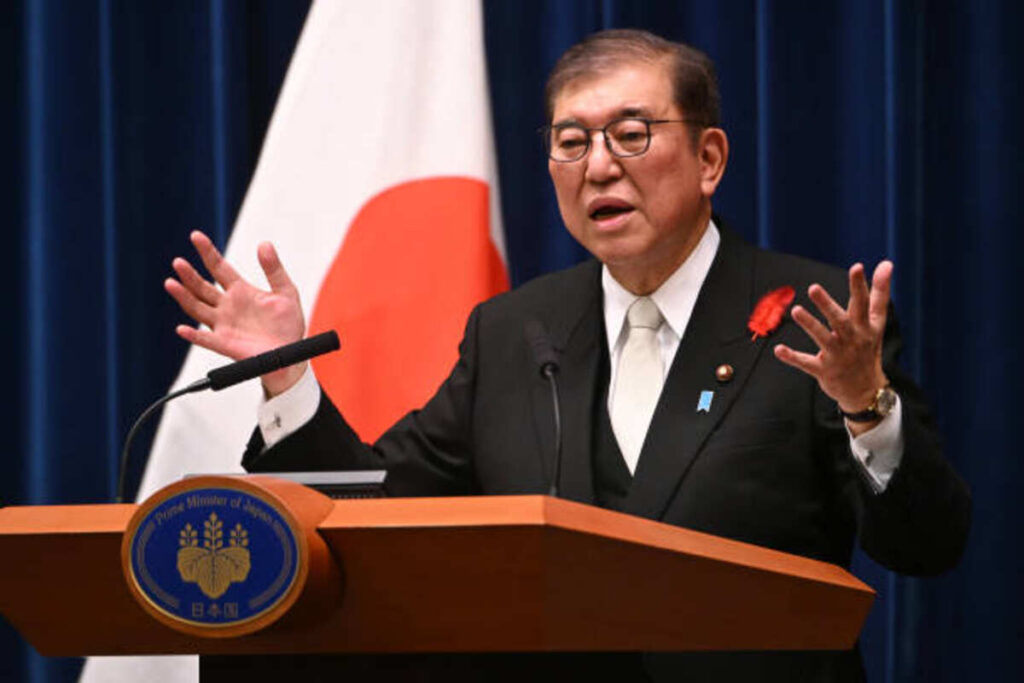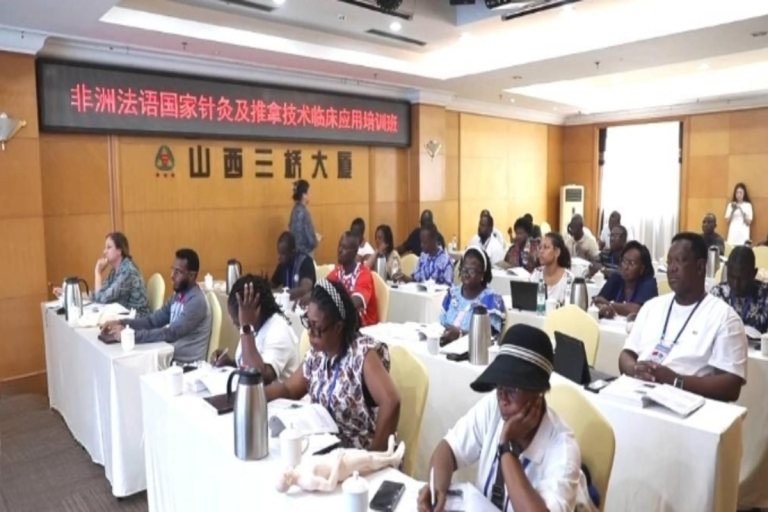
Shigeru Ishiba struggles to maintain leadership after upper house loss weakens coalition control.Yuichi Yamazaki - Pool/Getty Images
EPICSTORIAN — Japanese Prime Minister Shigeru Ishiba is holding onto power despite a major electoral setback that left his ruling coalition without a majority in the upper house, as Japan braces for the economic impact of looming U.S. tariffs.
The results have intensified domestic criticism of Ishiba’s leadership and raised questions about the future stability of his government.
Upper House Election Defeat Weakens Japanese Prime Minister’s Standing
In Sunday’s election, Ishiba’s Liberal Democratic Party (LDP), which has governed almost without interruption since 1955, along with its junior coalition partner Komeito, fell three seats short of retaining their majority in the upper house.
Also Read:Exclusive: Japan identifies North Korea missiles as ‘grave imminent threat’ now
The results reflect growing voter frustration over rising inflation and economic uncertainty. Much of the public’s discontent has been driven by stagnant wages and higher living costs, prompting shifts in voter loyalty to smaller parties.
One of the key beneficiaries of the ruling coalition’s losses was the “Japanese First” Sanseito party, which made significant gains by capitalizing on rising anti-globalist sentiment.
The party’s platform emphasizes sovereignty and self-reliance, echoing broader populist movements gaining ground globally. Analysts note the shift mirrors similar trends seen in Europe and the United States as voters express dissatisfaction with traditional political elites.
“I even think the LDP should have lost more,” said Kazuyo Nanasawa, a 25-year-old voter in Tokyo who supported a small ultra-conservative party. “Ishiba should quit.”
Looming U.S. Tariffs Deepen Japan’s Economic Woes
The political blow comes at a difficult time for Japan’s economy, which is already under strain from pending U.S. tariffs targeting key sectors like automobiles and technology.
These new trade measures are expected to hit Japan’s exports hard, putting further pressure on Ishiba’s government as it struggles to manage economic headwinds.
Economists warn that the combination of domestic political instability and external trade threats may complicate Japan’s efforts to sustain its economic recovery.
“This result weakens Japan’s negotiating hand at a critical time,” said a senior economist, referencing the country’s ongoing efforts to mitigate the impact of these tariffs.
Opposition Gains Reflect Broader Political Shift
The election outcome signals a shift in Japan’s political landscape. Sanseito’s surge underscores how anti-globalist rhetoric has gained traction among voters disillusioned by years of economic stagnation and political scandals.
The party’s message resonated particularly with younger voters seeking alternatives to the status quo, fueling concerns within the LDP about its future electoral prospects.
According to reports from Japanese media, the LDP’s internal divisions are likely to deepen if Ishiba’s leadership continues to falter. Party insiders have already hinted at potential leadership challenges unless public support rebounds in the coming months.
LDP’s Worst Result in 15 Years Signals Rising Challenges
This marks the LDP’s worst performance in an upper house election in over a decade, following its earlier failure to maintain a majority in the more powerful lower house.
Analysts warn that unless the party regains public trust, Japan’s traditionally stable political order could face further disruptions, with more radical parties poised to capitalize on the vacuum.
For now, Ishiba has expressed no plans to resign, but the pressure from both within his party and from the public continues to mount against his leadership.

